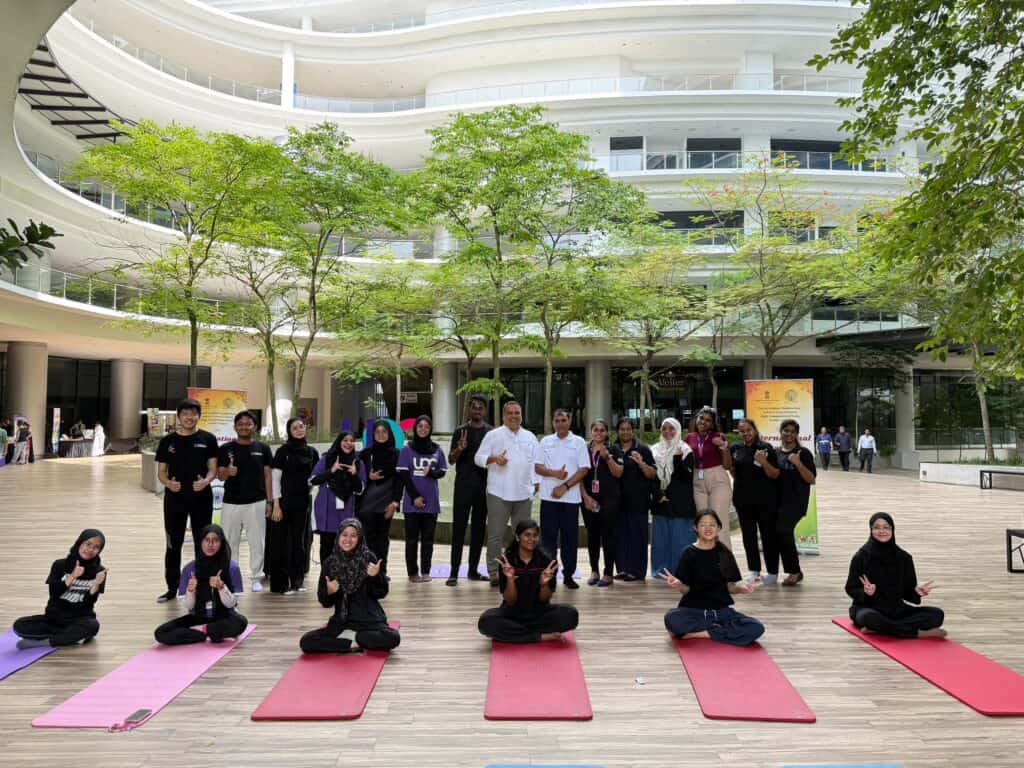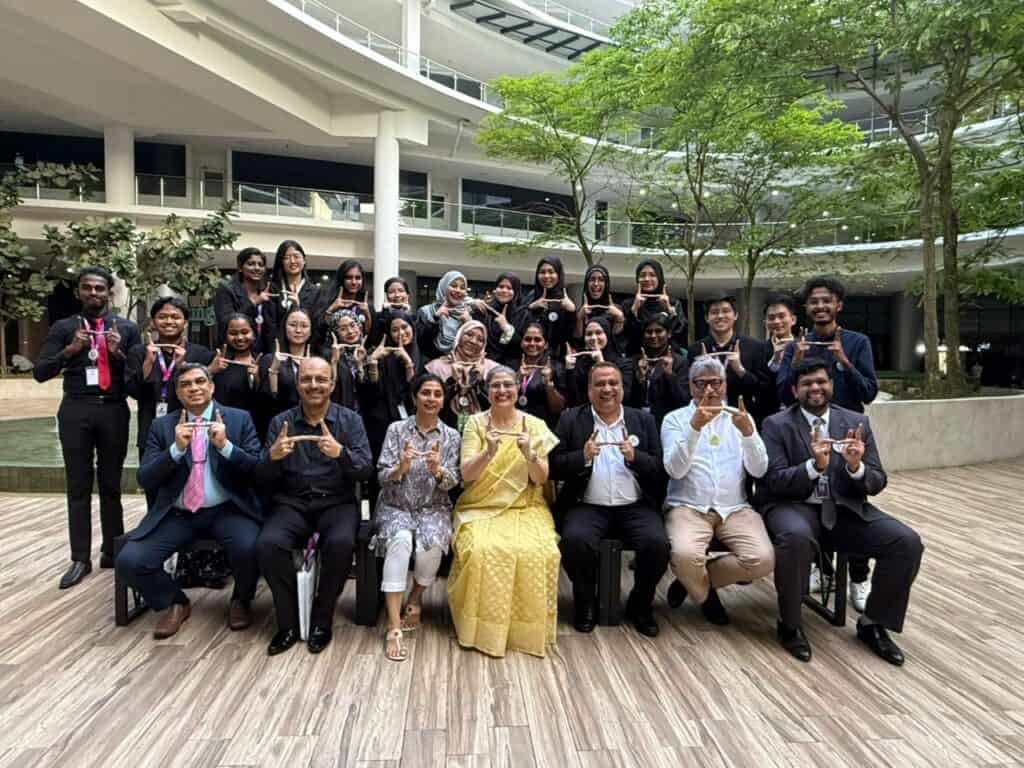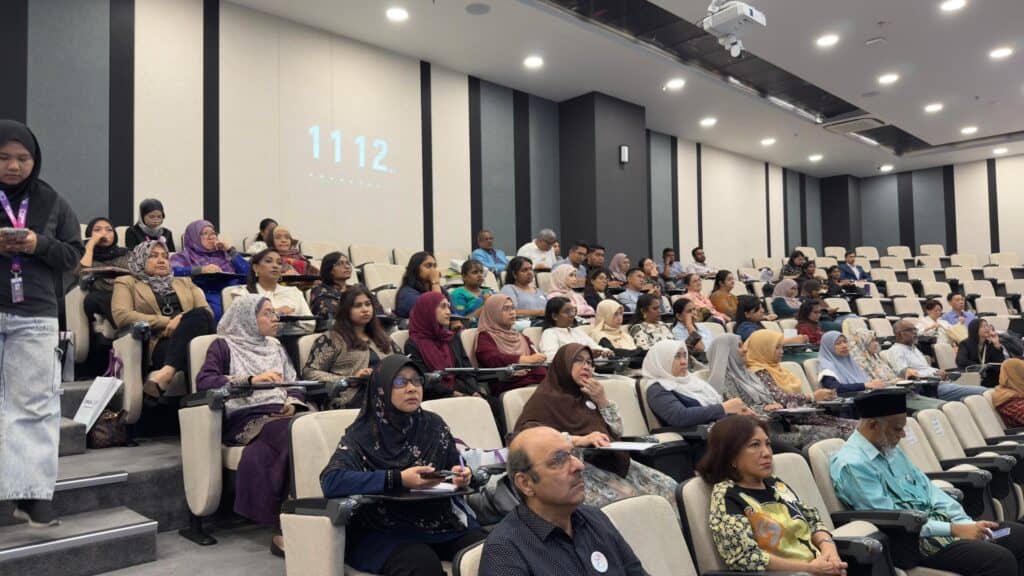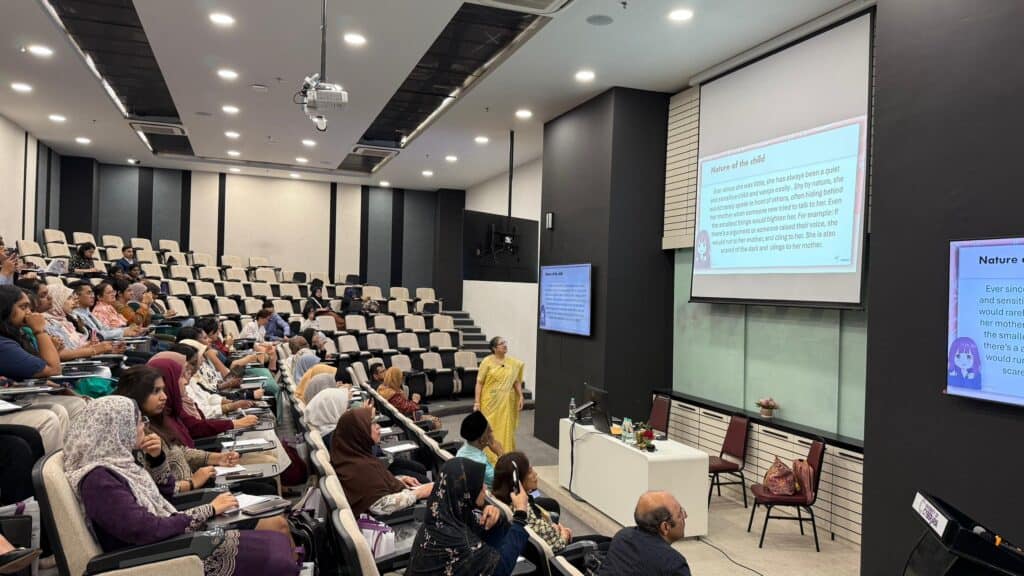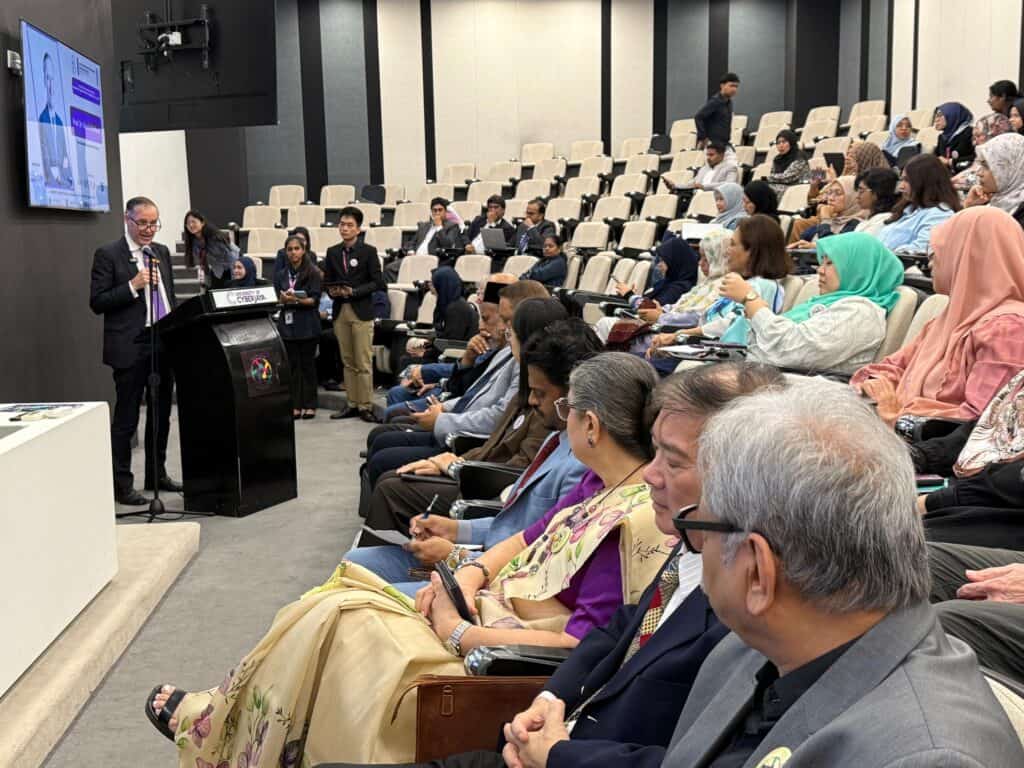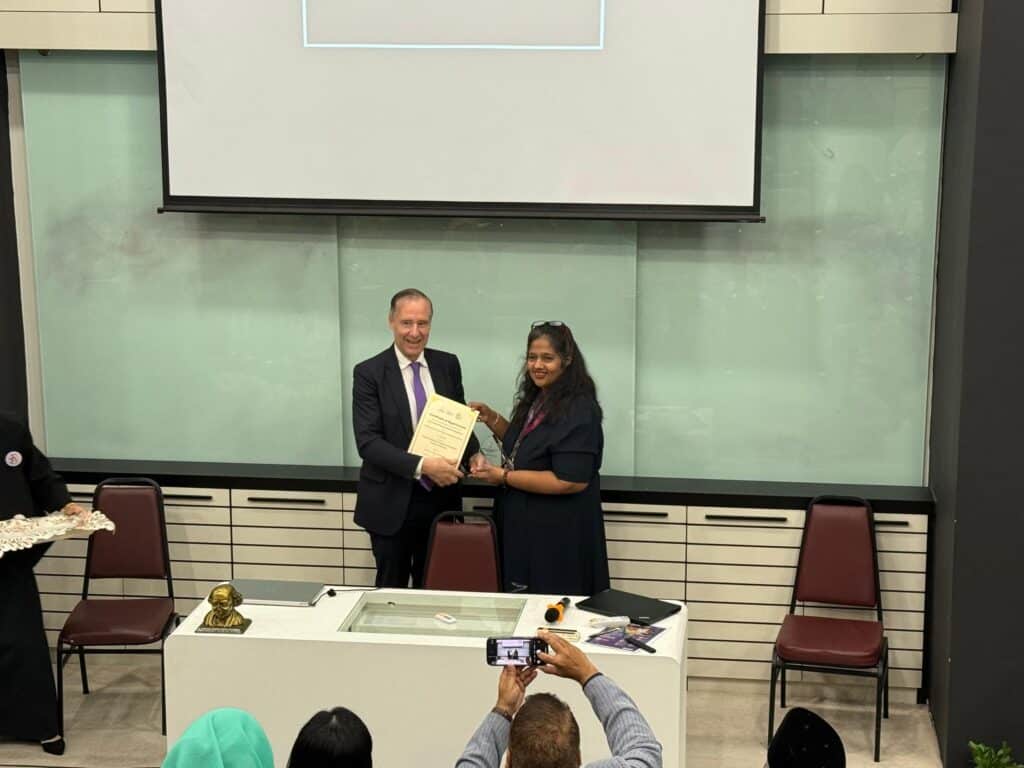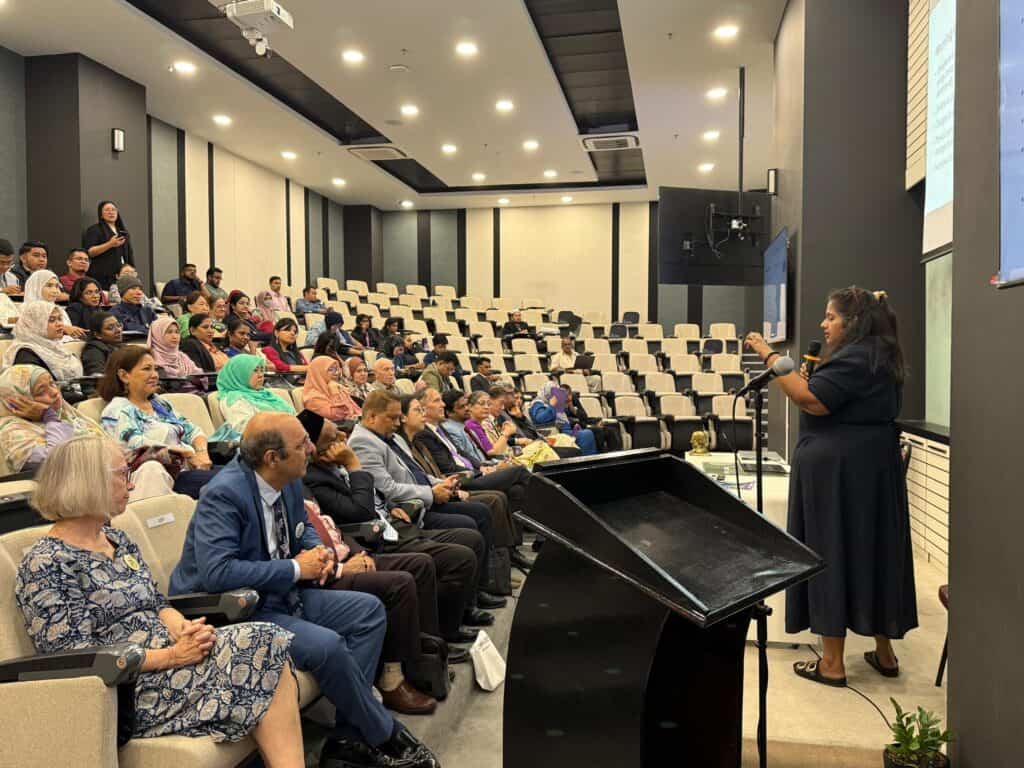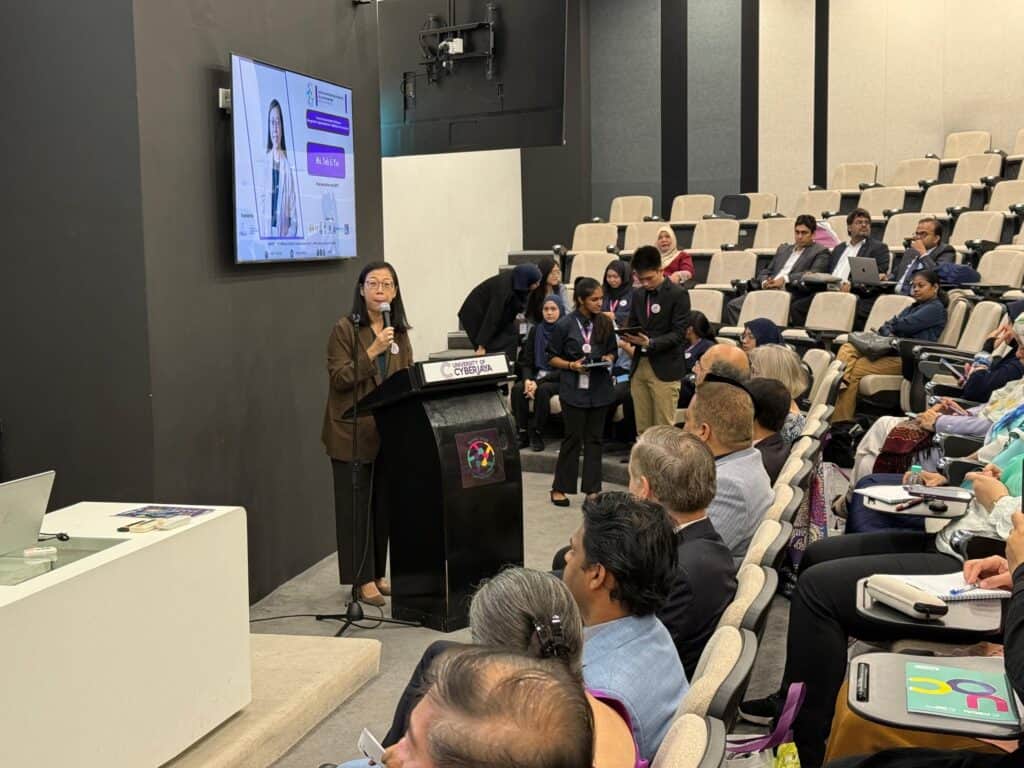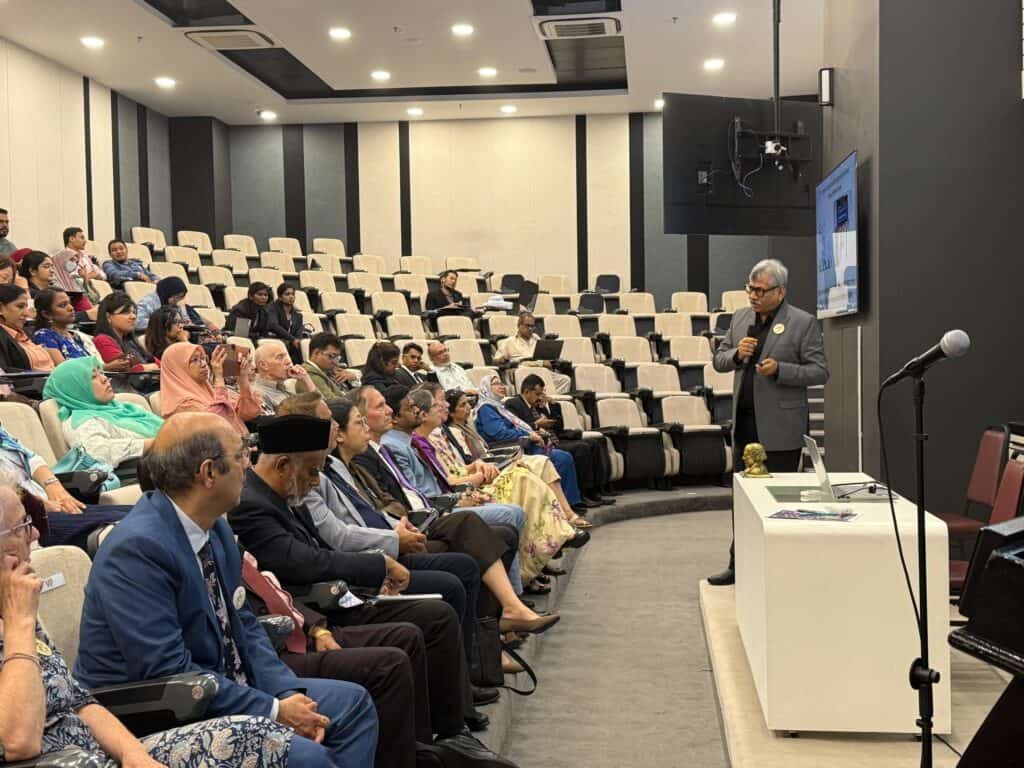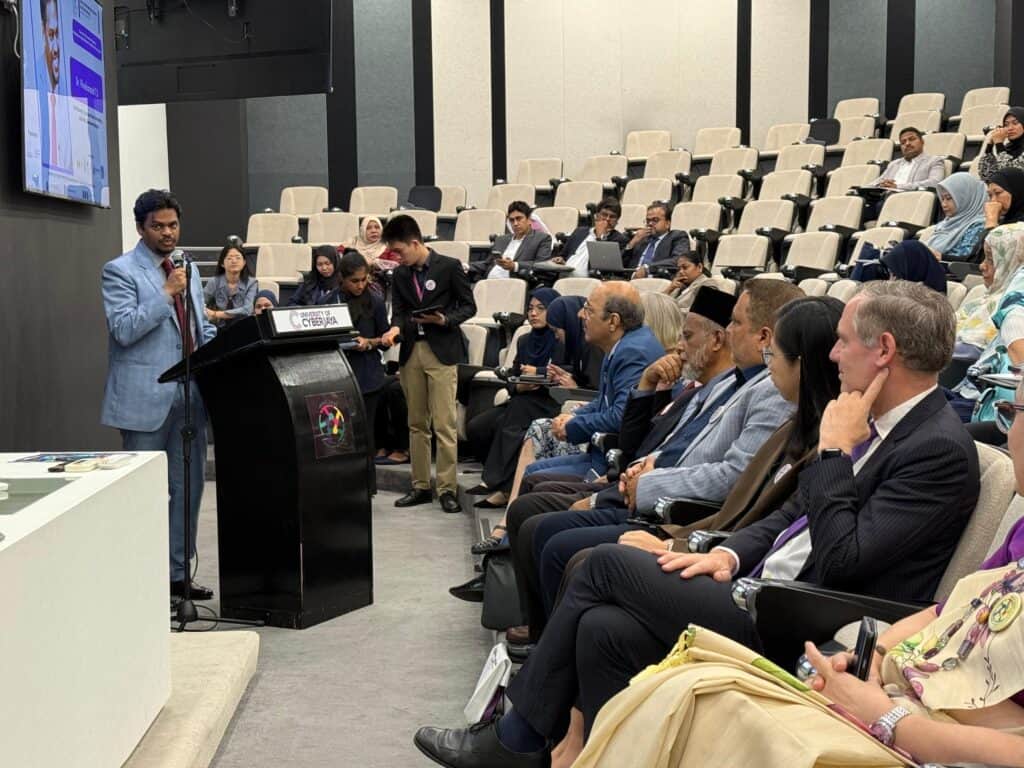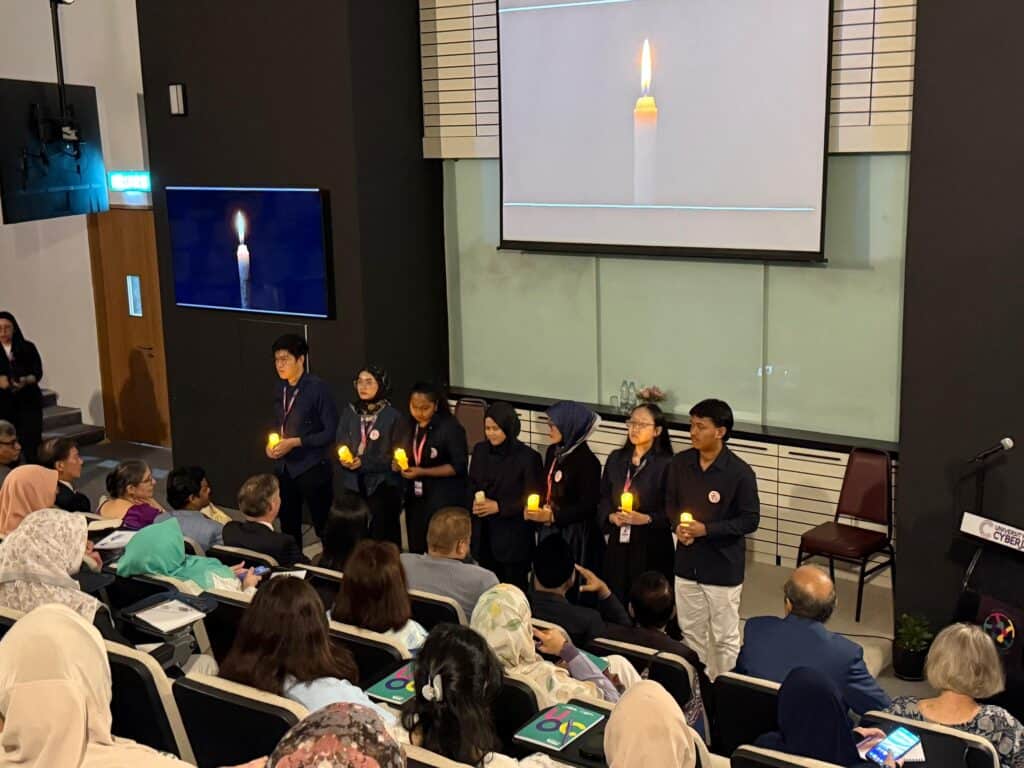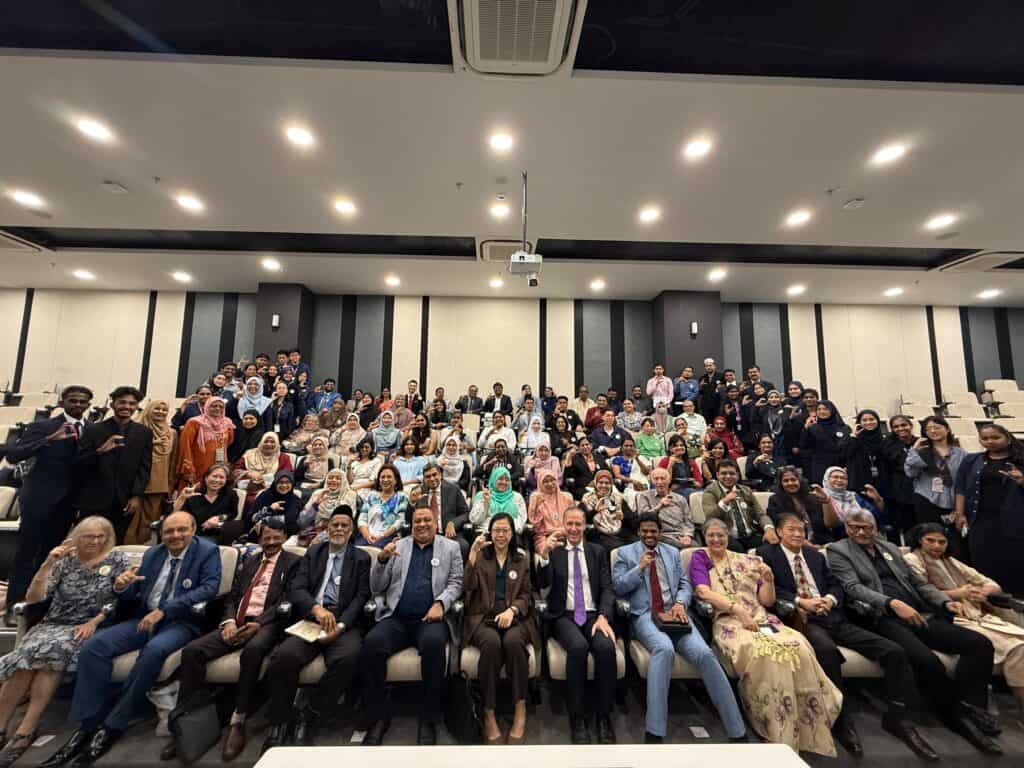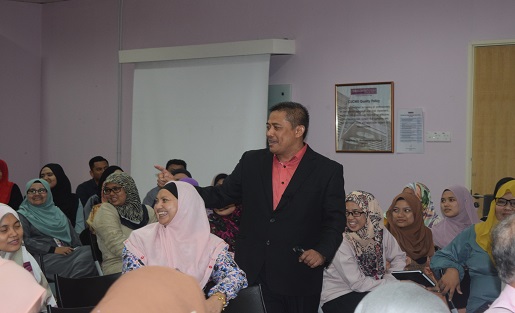The University of Cyberjaya (UoC) marked the beginning of the 2nd Malaysian International Integrative Healthcare Conference (MIIHC) 2025 with a vibrant showcase of holistic health practices, reflecting the event’s theme, “Towards Sustainable Wellness: Integrative Approaches for an Addiction-Free Society.”
The conference began on 13 June with T&CM Wellness Day, where students had the opportunity to engage in holistic health experiences including a yoga session, free health screenings, traditional therapy exhibitions, and research poster presentations. Organised by the Faculty of Traditional and Complementary Medicine, under the able leadership of Assoc. Prof. Dr. Ibrahim Usman Mhaisker, Dean of the Faculty, and his dedicated team, the initiative aimed to raise awareness of integrative healthcare practices that support physical, mental, and emotional well-being.
The momentum continued on 14 June with a pre-conference seminar led by renowned homoeopath Dr. Parinaz Humranwala, offering deep insights into skin disorders, grief, and lifestyle diseases through a homeopathic lens. The seminar attracted healthcare professionals and students interested in alternative and evidence-based therapeutic approaches.
The main conference on 15 June welcomed delegates and speakers from Malaysia, India, and Australia. The inaugural ceremony was graced by Prof. Dr. David Whitford, Vice Chancellor of the University of Cyberjaya. Also present were First Secretary Dr. Vivekanand T.S, representing the High Commission of India, and Dr. Teh Li Yin from the Traditional & Complementary Medicine Division, Ministry of Health Malaysia.
The plenary sessions explored contemporary behavioural health concerns such as social media dependency, pornography addiction, and autism, supported by evidence-based presentations from international specialists. Running alongside these were oral and poster presentations, showcasing academic research and student contributions. The conference concluded with an award ceremony recognising the best presentations.
MIIHC 2025 not only encouraged meaningful conversations around addiction but also reinforced the importance of blending traditional wisdom with scientific research to foster sustainable wellness and a healthier, addiction-free society.
